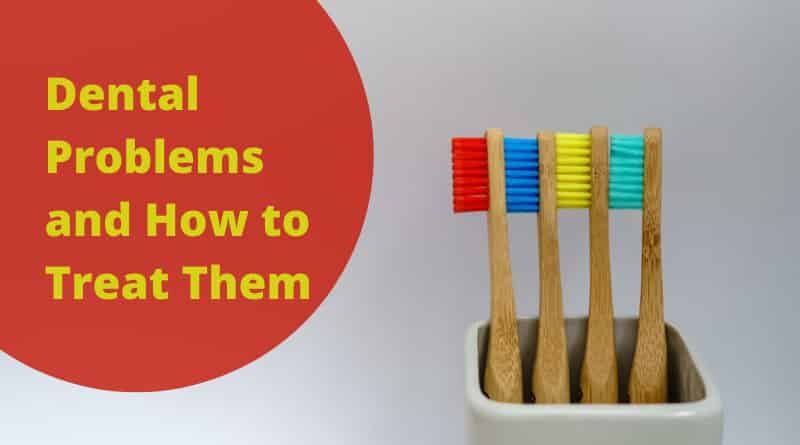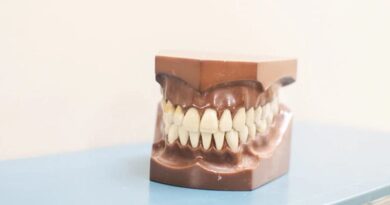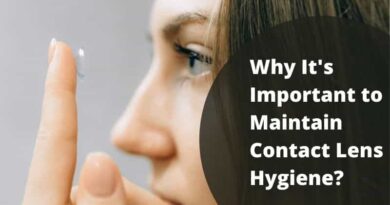4 Dental Problems and How to Treat Them
Dental care is a crucial aspect of general health. It’s very easy to neglect your teeth and gums, but doing so can lead to severe problems down the line. Keeping the teeth and gums in top shape can be done by attending to your teeth after meals, brushing twice per day, flossing once per day, visiting the dentist for regular checkups, and eating a balanced diet.
There are several problems that could arise if you neglect the health of your mouth. Read on to find out about four common problems that may develop as an consequence of poor oral hygiene and how to treat them.
Table of Contents
Tooth decay
Tooth decay, also called cavities or caries, is a form of tooth damage that occurs when microorganisms in the mouth combine with food debris and saliva to produce acids that break down the hard tissues of the teeth. Without treatment, these acids can spread into the inner layers of enamel and dentin beneath the surface and result in decay within 1-2 years. The number one dental problem today is decay because it’s not always detected immediately.
Several treatments exist for this problem. Your dentist can provide a fluoride treatment, which can help the enamel to repair itself. You can also get fillings, where your dentist will remove the decayed tissue and then restore the tooth by filling it with a filling material. Last, you can get a root canal. This is needed when decay spreads to the pulp (inside of the tooth). Your dentist will remove the decayed pulp and clean inside the tooth and root.
Chipped tooth
A chipped tooth is when a bit of the tooth has broken off. If you chip your tooth, try rinsing with salt water as this can relieve any pain or discomfort as you recover from the accident. Chipped teeth are typically not painful, but they can be extremely sensitive to hot and cold foods and drinks.
If a dentist isn’t available to help restore your teeth immediately, you can gather the missing pieces and keep them in a glass of milk. This will keep the fragments together while allowing you time to visit a dentist for professional treatment. You might look up more permanent solutions with your dentist.
Read: Dental Implants Vs Dentures
Bad breath
Bad breath, or halitosis, can be hard to get rid of even when you brush regularly. Everyone has experienced the discomfort of bad breath at some point in their life. The odor is caused by bacteria accumulating on the gum line and tongue while eating food.
If this issue persists after using mouthwash and brushing regularly, then you may need to visit your dentist for a checkup. If there are no other signs of an oral health problem, then it’s likely that sleep apnea could be causing your bad sleep. This happens because breathing becomes extremely difficult while sleeping, which results in less oxygen getting into the lungs. As saliva accumulates in the mouth during sleep apnea episodes, it gives off odors that are carried further by the cold air that exudes from the mouth.
Persistent bad breath can be a symptom of gum disease. Although there are products you can use in an attempt to treat it at home, visit your dentist if persistent halitosis is affecting your quality of life.
Dry Mouth Syndrome
This medical condition happens when the amount of saliva decreases and becomes abnormally thick. Saliva enables food to be able to break down easily, as well as lubricate and cleanse the mouth.
If your mouth is constantly dry over a long time period, it may cause damage to your teeth and gums due to lack of protection from carbohydrates which leads to tooth decay along with fungal infections such as thrush. In order for saliva to replenish itself, you need to drink plenty of liquids. This also helps with bad breath as it washes away any food residue that may be forming in your mouth.
To prevent dry mouth syndrome, there are prescription medications doctors can prescribe. It is recommended that individuals visit the dentist for a checkup and cleaning at least once a year.
The dentist may recommend a toothpaste that includes an antibacterial agent or an antibacterial mouthwash. Alternatively, if gum disease is present, professional cleaning may be necessary to clear out the build-up of bacteria in pockets between the gums and teeth.
Recommended Articles:




